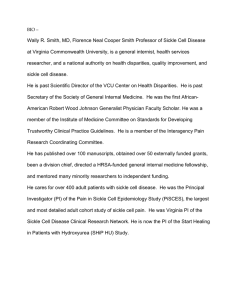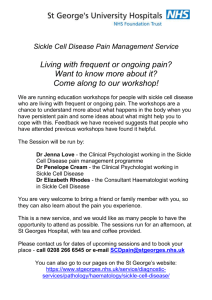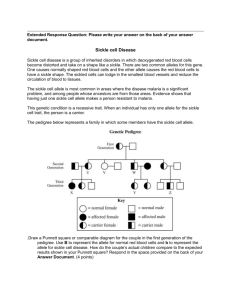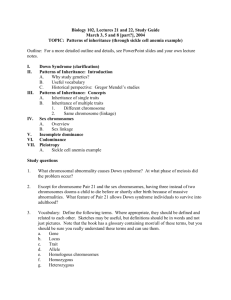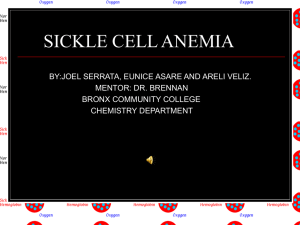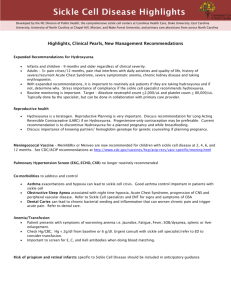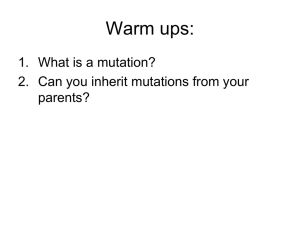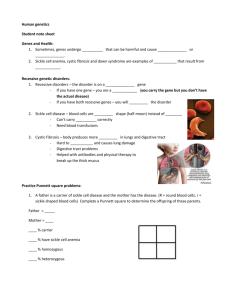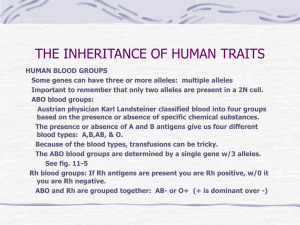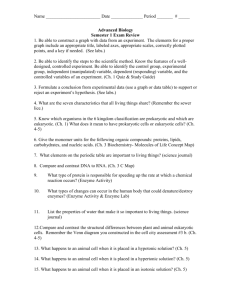Pedigree - Sickle Cell Inheritance ?`s
advertisement
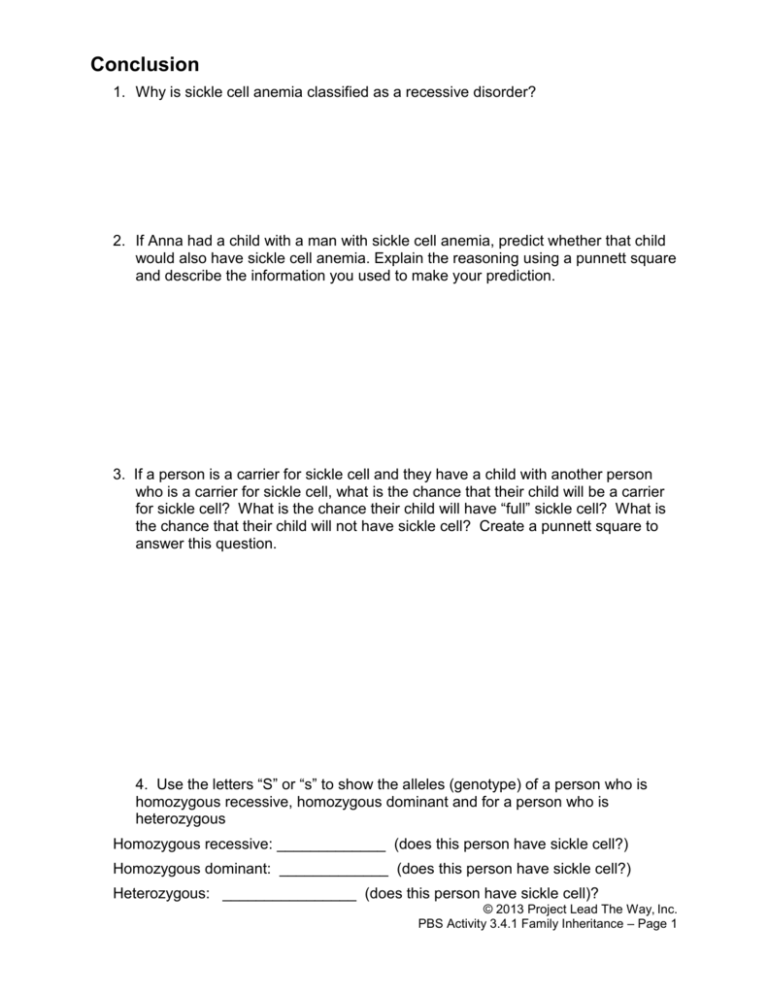
Conclusion 1. Why is sickle cell anemia classified as a recessive disorder? 2. If Anna had a child with a man with sickle cell anemia, predict whether that child would also have sickle cell anemia. Explain the reasoning using a punnett square and describe the information you used to make your prediction. 3. If a person is a carrier for sickle cell and they have a child with another person who is a carrier for sickle cell, what is the chance that their child will be a carrier for sickle cell? What is the chance their child will have “full” sickle cell? What is the chance that their child will not have sickle cell? Create a punnett square to answer this question. 4. Use the letters “S” or “s” to show the alleles (genotype) of a person who is homozygous recessive, homozygous dominant and for a person who is heterozygous Homozygous recessive: _____________ (does this person have sickle cell?) Homozygous dominant: _____________ (does this person have sickle cell?) Heterozygous: ________________ (does this person have sickle cell)? © 2013 Project Lead The Way, Inc. PBS Activity 3.4.1 Family Inheritance – Page 1
